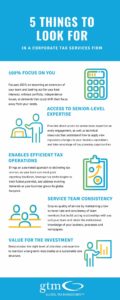By Robert Butterbaugh, Property Tax Practice Leader
30-Second Summary:
- COVID-19 will likely have profound impacts on the value of the underlying assets of industries, including their property taxes.
- Substantiating a position for economic obsolescence must be fully supported with facts, must utilize standard appraisal methodologies, and must adhere to state-specific statutes, case law, and assessment practices
- It is prudent to gather all relevant factual evidence of the economic drivers specific to your company’s assets as an initial critical first step. The more direct evidence you can present, the better off you will be to obtain fair and equitable assessments and realize property tax savings for specific assets in local taxing jurisdictions throughout the U.S.
- Here, I share a property tax strategy that can be used to partially offset the potential adverse economic impacts of the virus in the months ahead.
The pandemic known as COVID-19, commonly called the coronavirus, has consumed the world’s attention for the past months – and its ramifications, while still unfolding on a daily basis, are very much top of mind for businesses and citizens alike. Measures taken to prevent the spread of COVID-19 are causing an unprecedented upheaval for all businesses as commerce stands still, supply chains shift, and progress on existing key initiatives stalls amid the uncertainty surrounding the future business and economic climate. Unfortunately, there is no real reliable playbook for how the worlds’ largest economy should respond to this highly contagious pandemic, and most economists are now predicting a recession, the severity and duration of which is in question.
The only thing certain at the moment, from a broad spectrum of health, economic, business and governmental sectors, is uncertainty itself. Uncertainty stemming from this virus is also a catalyst to the dramatic short-term impact of the sizable declines in the stock market and the economic ripple effects already broadly felt by all industries, particularly by those sectors hardest hit.
This uncertainty will also most likely have profound impacts on the value of the underlying assets of specific industries. Since real and personal property taxes are predicated on the market value of assets, it is important to first understand the potential impact of these variables on the assets that are subject to property taxation. In this blog, I examine the potential economic ripple factors of this virus using an appraisal term known as economic obsolescence, which is based on the influence of external factors outside the control of the owner on the value of assets. I also share a property tax strategy that can be used to partially offset the potential adverse economic impacts of the virus in the months ahead.
The Manifold Facets of Uncertainty
Just a few weeks ago, the economic picture looked vibrant, with low unemployment, strong wage growth, and consumer optimism evidenced by growth in spending. To what extent the economic shocks of this sudden shift will be felt, and for how long, is the subject of much debate.
Though this pandemic is unique and unprecedented in the modern economy, the global economy and financial markets have responded over the past few decades to a series of unknown shocks that have posed challenges but have largely been resilient to adapt and stabilize the markets. While we can’t predict which measures will be successful, or will fail to achieve their mark, we can refer to a well-established valuation principle that buyers’ and sellers’ decisions are heavily influenced by uncertainty and perceived risks when it comes to acquiring, owning, and operating real and personal property assets.
As the economic impact of the virus grows, common sense measures are being enacted to provide aid and relief to businesses and workers; these may flatten the curve and soften the economic blow. They are primarily designed to provide relief to the sectors most impacted by the containment measures, provide a cash cushion for small companies with limited liquidity, and provide collateralized loans for those beleaguered industries, such as the airline industry, to help them survive the economic storm.
Some risk mitigation measures currently under development include:
- Collaboration of businesses with a vested interest in recovery who are participating with the government to provide real-world, practical solutions.
- Strong and capable medical teams providing vital information needed to contain the virus and to quell the current hysteria of the spread of the virus and respond with realistic remedies to a resurgence of the virus when colder temperatures resume.
- Adapting best practice solutions from countries such as South Korea and China, which are further ahead on the learning curve for containing the spread of the virus.
Despite these risk mitigation measures, the following questions of uncertainty are looming large for many consumers and businesses:
- What will be the impact of widely available testing on containing the spread of the virus?
- What will the permanent impacts of the virus be?
- Will the most impacted industries truly rebound or be reshaped indefinitely?
- Will the stimulus packages be effective in restoring business and consumer confidence particularly for the hardest hit sectors or will bailouts, potential government equity stakes and other adverse reactions offset these gains?
- What kind of disruption will be experienced by international supply chains facing shortages of components?
- Will certain industries, particularly pharmaceuticals, change their global footprint to bring back the manufacture of pharmaceutics from China to the US?
- How much of an increase in component prices can companies absorb from global markets already experiencing squeezed margins from trade wars and tariffs?
- Is the U.S. headed into a recession and if so, what is the shape and duration of the recession?
- Will there be pent-up demand that offsets the impact of the shut down and temporary measures taken to contain the virus?
- How long will businesses sit on the sidelines? Will capital spending freezes or slower pace for approval of capital projects be the norm until business confidence is restored?
- How do small businesses with limited liquidity withstand this period? Will the economic stimulus package provide enough relief, or will there be a culling of the weak companies?
There will inevitably be industry winners and losers. Some may be able to withstand the short-term hit to their operations and changes to the respective industries, but it is likely that many smaller businesses will not have the liquidity even with some relief coming their way to endure the volatility and economic storm that is gathering steam.
Valuation and Property Taxation Take-Aways
Appraisers who regularly evaluate the actions of marketplace participants have adopted standard appraisal approaches to estimate the fair market value that includes the influences of external factors to the assets under review. Similarly, assessors are charged with assessing the properties within their jurisdictions with fairness and uniformly. The property tax statutes governing what is taxable, the standard of value, and equalization between classifications of taxpayers are unique to each state. However, assessed values of property, plant, and equipment are predicated on these same standard appraisal theories and therefore, must take into effect the impact of the economic ripple effects of this outbreak of the coronavirus on assets subject to property taxation.
Two key appraisal terms are worth defining:
- Fair market value is an opinion expressed in terms of money, at which the property would change hands between a willing buyer and a willing seller, neither being under any compulsion to buy or to sell and both having reasonable knowledge of relevant facts, as of a specific date. [1]
- External (economic) obsolescence is the temporary or permanent impairment of the utility or salability due to negative influences outside the property.[2] These factors may include competitive market forces, regulations, and all other factors outside the property owner’s control.
How we answer the above referenced questions, which are at the heart of the uncertainty stemming from the coronavirus impacting the potential reactions by market participants, manufacturers, distributors, and consumers, will produce profound impacts to business asset values that may be subject to real and personal property tax. Though the assessor must consider these economic factors and measure their impact in developing the assessed values of the underlying assets, the burden of proof rests on the taxpayer to provide evidence of the impact of these economic factors on the assets subject to property tax. Assessors may be relying on mass appraisal techniques and outdated economic information, and may therefore understate the adjustments to market value to recognize these economic developments.
Taking the steps necessary to measure the economic impact to the specific facts impacting your industry and the local markets where you conduct business may result not only in obtaining fair and equitable values; it may also result in significant tax savings, and could help you withstand the adverse impact of the economic ripple effects of this virus in the months and years to come.
Substantiating a position for economic obsolescence must be fully supported with facts, must utilize standard appraisal methodologies, and must adhere to state-specific statutes, case law, and assessment practices. It is prudent to gather all relevant factual evidence of the economic drivers specific to your company’s assets as an initial critical first step. The more direct evidence you can present, the better off you will be to obtain fair and equitable assessments and realize property tax savings for specific assets in local taxing jurisdictions throughout the U.S.
About GTM’s Property Tax Services
GTM has the both the expertise and track record of assisting clients in recognizing macro-economic events such as the economic factors that emanate from external events such as the coronavirus and developing a supportable basis for economic obsolescence based on sound appraisal theory. Even if the markets stabilize and profits though squeezed rebound, recovery may be slow and certain industries may be reshaped in the process which may have a significant impact on market values. Contact Robert Butterbaugh if you’d like additional guidance on developing a credible basis for adjustments in market value with assessment officials in order to obtain fair and equitable assessed values of your personal and real property.
[1] Fair market value definition, Machinery & Technical Specialties Committee of the American Society of Appraisers – July 25, 2018.
[2] External obsolescence definition, The Appraisal of Real Estate, 12th Edition, Chapter 14 (p. 363)



